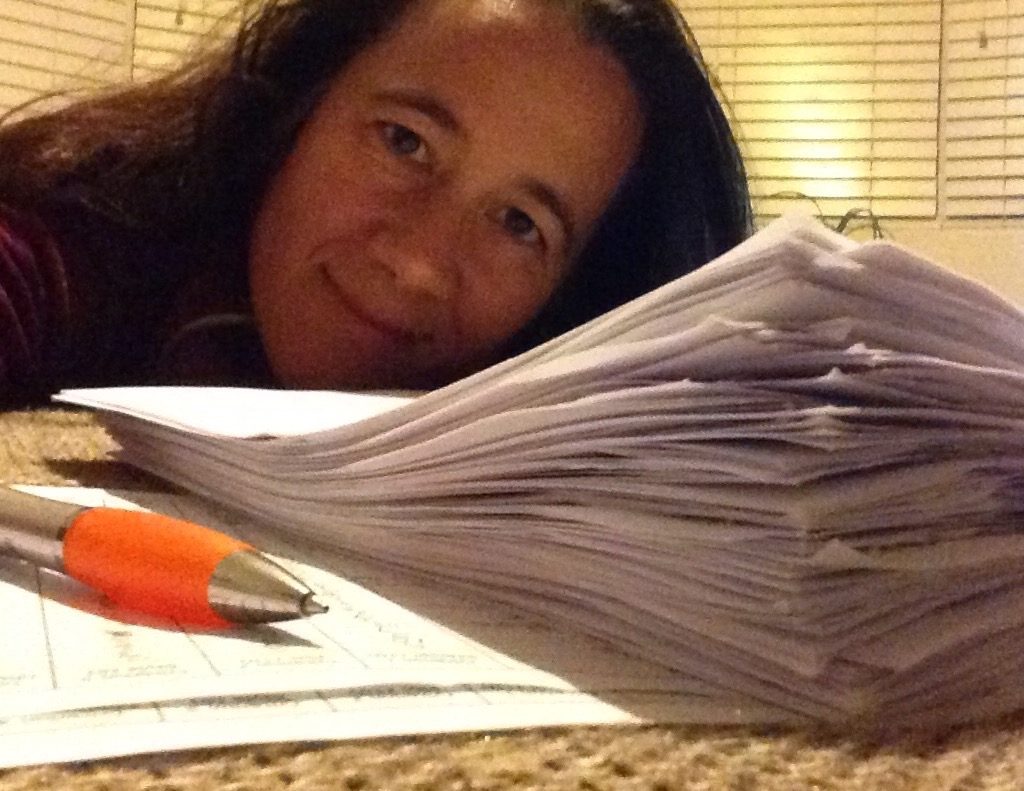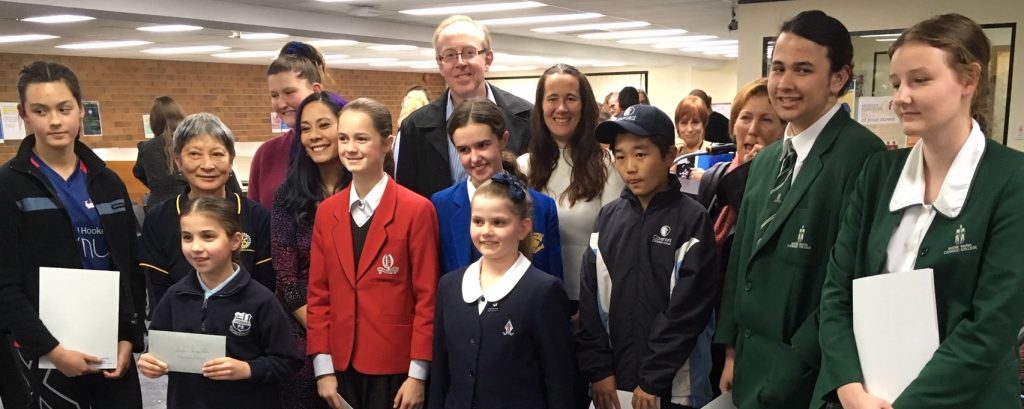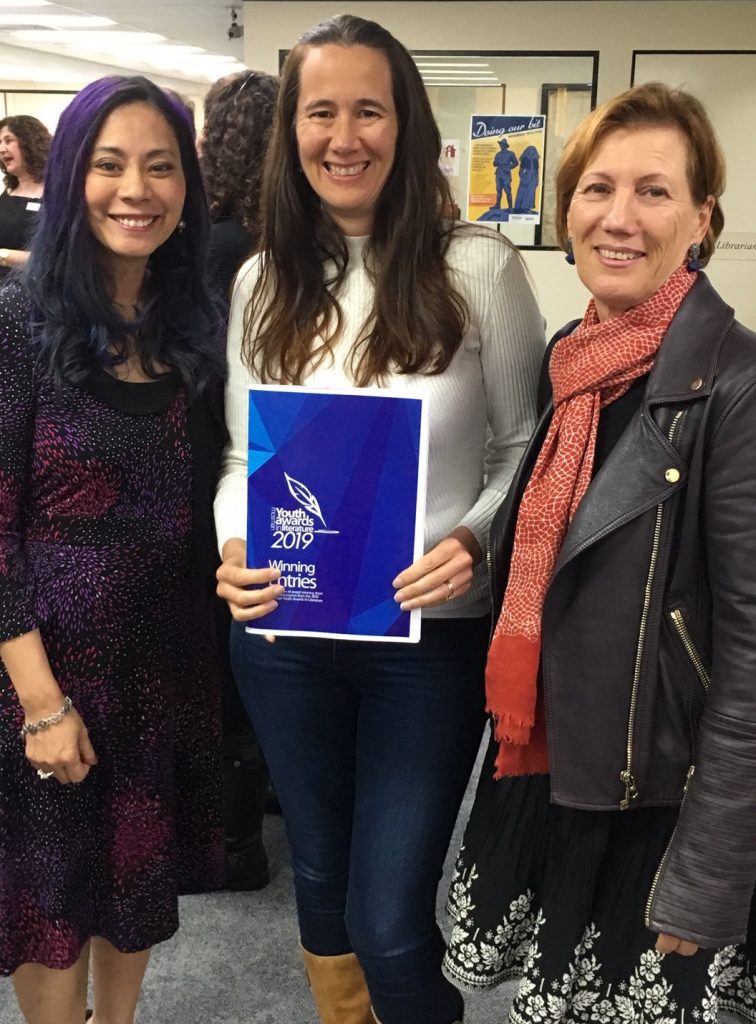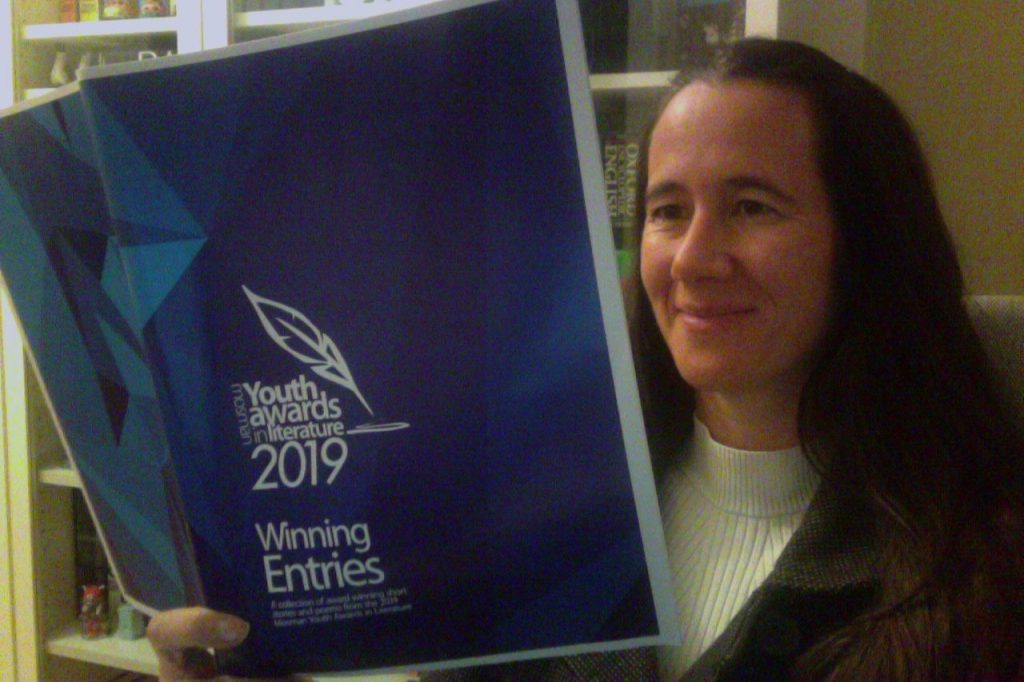Last night I gave my judge’s report at the Mosman Literary Awards 2019, held at Mosman’s Barry O’Keefe Library. This annual prose and poetry competition attracts budding writers, poets and playwrights from schools across the state, all of whom compete for a share in the $2,000 prize pool.

I’m the judge for the Senior Prose section (for high school students in years 10, 11 and 12), and as in previous years, there were some amazing short stories. Instead of my usual shortlist of 10, I had a shortlist of 15 and each of them deserved recognition!
Here’s an overview of the entries:

- Story topics ranged greatly and included the experience of blindness, organ transplants, clowns, colonisation, siblings, alcoholic parents, abuse, grief, social media, dance, rebellion, torture, serial killers, the environment, unlikely friendships, disability, artificial intelligence, robots and drowning.
- POVs (points of view) varied too, with some interesting perspectives being those of a musician, cowboy, NYPD cop, princess, refugee, corpse, and chimpanzee!
- As well as the here and now, settings included the beach, space, WWI, WWII, a zombie apocalypse, an asylum, a desert, hospital, China, India, USA, and Vietnam.
- There were also several brave attempts at using alternate narrative structures such letters, emails, and passages of myth or poetry.
As for the standout skill of the year, whereas last year it was character development, the standout skill this year was use of language. I had to re-read many sentences or turns of phrase simply because they were so utterly sumptuous. Young writers are definitely paying attention to the words they’re using and demonstrating how powerful the right words can be in the right place. Words can make readers cry or laugh, furious or joyful, and these writers really made me want to stop and think, to absorb the meaning in their words – well done!
However, use of language is not all there is to a good story, so I have five tips for young writers keen to progress:
- Prioritise story. The key element to any story is story itself. Readers have to be able to understand what you’re trying to say. Often as a reader I didn’t have any clue where I was, what was actually happening or whom was speaking, whereas just a hint would have helped ground me. Readers can wait for clarification. Mystery can build. Awaited truth reveals can delight. But talking heads in an undefined space risks actually engaging the reader. A strong narrative voice is only intriguing if readers can also understand (roughly) what a character is doing and where. Avoid withholding basic information from the beginning.
- Lead your readers to an ending. Some endings were too ambiguous. You don’t have to give the reader definite answers. Ambiguity can give the reader freedom to make up their own minds about what happens next. At the same time, it’s about balance. You need to at least show the reader which paths your character might chose. What’s the character thinking? What were their initial goals? What choice do they have? The strongest endings clearly expressed these elements.
- Add a title. Titles are a chance to hint at a story’s subject or theme. While you know the story you want to tell, readers don’t. A title can help prevent confusion by guiding readers towards your premise from the outset. Title your work.
- Avoid naming emotions. If you’re mentioning the name of an emotion, it’s a sign you might be ‘telling’ rather than ‘showing’. Can you show your character’s emotions through their thoughts or actions? Consider alternate options to simply stating how a character feels.
- Check spelling & grammar – especially changes in tense. Read your work aloud or get someone/your computer to read it to you. This should help you hear tense shifts even if you can’t see them. You may also hear missing or extra pronouns. Just watch out for homophones such as their/there, except/accept, break/brake, steal/steel – speaking programs won’t help you identify those.


The winning entries did all of the above and more. They possessed a strong narrative force that threw me into the story and maintained an element of mystery all the way through, keeping me wondering what was going to happen until an ending that completed the story with a satisfying resolution. They entertained, offered insights, kept and got the reader exactly where they wanted them. Congratulations! It’s been wonderful to watch you all receive recognition and validation. Keep going, everyone! Keep writing, keep submitting – if you want it, you’ll get there! Last year’s tips are over here. Other helpful blog posts include tips about filter words, over-blight and point-of-view.
Thank you to the Mosman Library Service, especially Linda Horswell, and everyone who makes these awards possible! You rock!
If anyone (young or old!) wants more tips or advice, I offer one-on-one mentoring, editing, manuscript assessments, and oodles of creative writing classes over here, for every age and level. I also teach writers’ groups, schools, festivals, conferences, and organisations with all these talks over here and more. I love creative writing! If I had my way, creative reading and/or writing would form a part of everyone’s daily routines! Read my own work over here.
As for me, I’m going to sit back now and re-read all the winners!







Good on you Zena. You rock too!
Thanks Zoya! You rock too, for reading and commenting – I really appreciate your support! 🙂
Great writing tips Zena! Very useful thank you!
Thank *you* and all the parents out there who so lovingly support their children in all their various and amazing talents and skills!